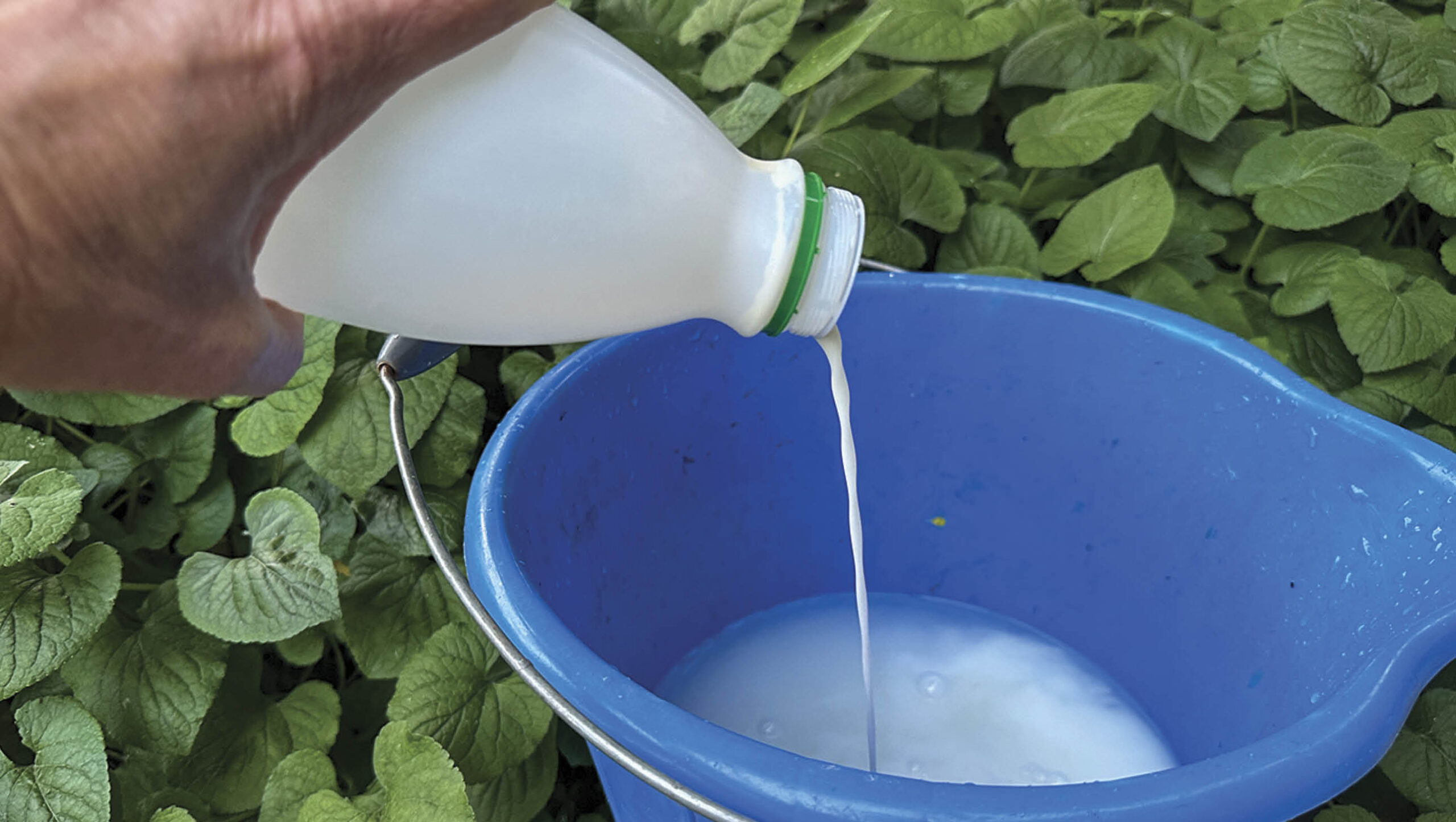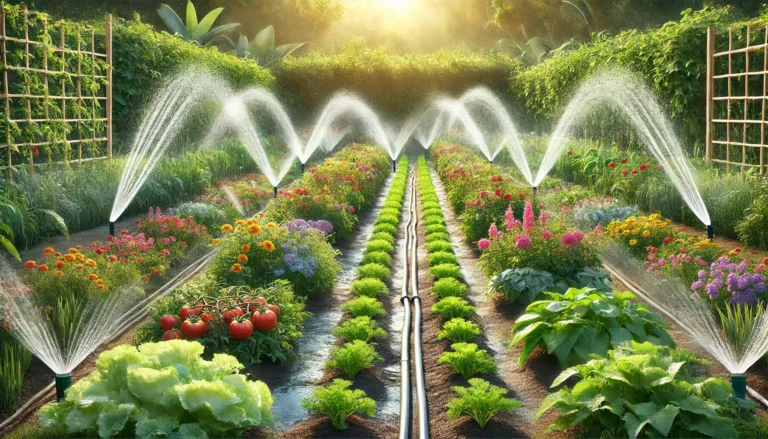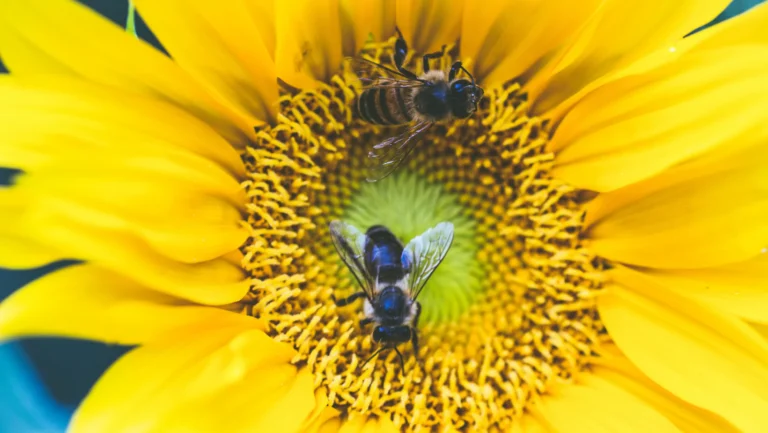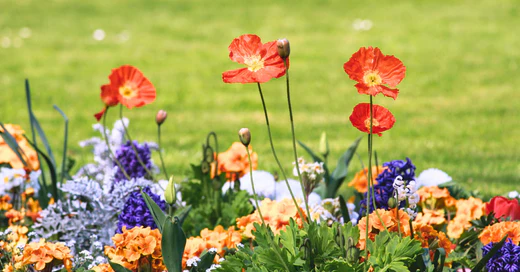Milk & Plants: Is watering with milk a beneficial calcium supplement or a gardening myth?
Milk is often praised as a rich source of calcium, essential for strong bones in humans. But does it offer similar benefits to plants? Gardeners have experimented with watering plants with milk, hoping to enhance their growth and health. However, is this an effective gardening hack or simply a myth? Let’s explore the truth behind using milk for plant care.
Understanding the science behind milk and plants
What nutrients does milk contain?
Milk is rich in calcium, proteins, vitamins, and natural sugars. While calcium is a crucial mineral for plant cell walls, it’s uncertain whether milk provides it in a form plants can easily absorb.
How do plants absorb calcium?
Plants typically obtain calcium through the soil, where minerals break down into soluble forms. Using milk as a direct source of calcium may not be as effective as traditional methods like compost or lime.
Comparing calcium sources: milk vs. other natural fertilizers
– Milk: Contains calcium but also fats and proteins that can lead to spoilage.
– Eggshells: Decompose over time, enriching soil calcium levels naturally.
– Bone Meal: A slow-release organic fertilizer ideal for long-term calcium supply.
– Lime: A widely used soil amendment to increase calcium availability.

Dispelling the myths: Is milk good for plants?
Can milk replace traditional fertilizers?
While milk contains some nutrients, it lacks the nitrogen, phosphorus, and potassium (NPK) essential for plant growth, making it an incomplete fertilizer.
Does milk help plants grow faster?
There is no scientific evidence proving that milk accelerates plant growth. It may provide a minor nutrient boost, but other fertilizers are far more effective.
Is milk an effective solution for fungal and pest issues?
Some gardeners believe milk helps prevent fungal diseases like powdery mildew. While diluted milk sprays can sometimes work, alternative organic solutions like neem oil or baking soda are more reliable.
How does milk compare to other plant supplements?
– Compost Tea: A nutrient-rich organic booster for soil and plants.
– Banana Peel Tea: Adds potassium and phosphorus to plants.
– Diluted Seaweed Extract: Provides trace minerals for plant health.
Practical applications: How to use milk in gardening
How to water plants with milk
– Use diluted milk (1 part milk to 3 parts water) to prevent soil buildup and foul odors.
– Avoid pouring large amounts, as excess milk can attract pests and bacteria.
Using milk to clean plant leaves
Milk can be used to wipe plant leaves, improving their ability to absorb sunlight. Simply mix milk with water (1:1 ratio) and gently wipe leaves using a soft cloth.
Milk as a DIY natural fertilizer
If you choose to use milk, apply it sparingly and infrequently to prevent unwanted bacterial growth in the soil.

Can spoiled milk be used for plants?
Some gardeners use spoiled milk as a fertilizer, but its effectiveness is debatable. Fermented alternatives like compost tea are a safer option.
Which plants benefit the most from milk fertilization?
Milk can sometimes help calcium-deficient plants like tomatoes, peppers, and squash. However, gypsum or bone meal are better alternatives for long-term calcium supply.
Common mistakes when using milk on plants
– Using undiluted milk → Can create a sticky residue and encourage mold.
– Overapplying milk → Can lead to soil imbalance and bacterial growth.
– Ignoring alternative calcium sources → More efficient options exist.

Alternative natural watering methods for healthy plants
1. 🌧️ Rainwater delight: Why it’s the best for plants
2. 🚰 Tap water tales:
– Mineral Matters: Depending on your region, tap water can contain minerals that plants appreciate. Just be mindful of excessive mineral buildup over time.
3. 🍚 Fermented rice water for plants: A probiotic boost
– Disease Resistance: The beneficial microorganisms in fermented rice water can enhance a plant’s immune system, making it more resistant to diseases and pests.
– Cost-Effective Solution: Using fermented rice water as a natural fertilizer is an economical way to provide nutrients to your plants without spending extra money.
4. 🍺 Benefits of diluted beer for plants:
– Nutrient-Rich Treat: Diluted beer contains beneficial nutrients like nitrogen, phosphorus, and potassium that can nourish plants and stimulate growth.
– Pest Deterrent: Some studies suggest that the aroma of beer can repel certain pests, such as slugs and snails, helping to protect your plants from damage.
– Increased Microbial Activity: The yeast in beer can promote microbial activity in the soil, improving its overall health and fertility.
– Enhances Flowering: Diluted beer can potentially encourage the blooming of certain flowering plants, leading to more vibrant and beautiful blossoms.
5. 🍌 Benefits of soaking banana peels for plants: A potassium powerhouse
– Potassium Powerhouse: Banana peels are rich in potassium, an essential nutrient for plant growth, root development, and overall vigor.
– Organic Pest Repellent: The compounds present in banana peels can act as natural repellents against aphids, ants, and other unwanted garden pests.
– Slow-Release Fertilizer: When soaked in water, banana peels release nutrients gradually, providing a sustainable and long-lasting source of nourishment for plants.
– Enriches Soil: The organic matter from banana peels improves soil structure, moisture retention, and microbial activity, creating a favorable environment for plant growth.
– Look for the new best organic liquid fertilizer for all types of plants
6. 🍊 Benefits of soaking orange peels for plants: A natural growth enhancer
– Natural Pest Control: The citrus oils in orange peels can help deter pests like ants, aphids, and mosquitoes from your garden.
– Organic Fertilizer: Soaking orange peels in water releases nutrients such as nitrogen, phosphorus, and potassium, enriching the soil and supporting plant growth.
– Soil Amendment: Orange peels add organic matter to the soil, improving its structure, drainage, and moisture retention.
– Fresh Scent: The pleasant citrus aroma from soaked orange peels can create a refreshing atmosphere in your garden.
7. 🧅🧄 Onion and garlic water for plants: Natural pest repellent for gardens
– Natural Insect Repellent: The strong smell of onion and garlic water can deter pests like aphids, mites, and caterpillars, protecting your plants from damage.
8. 🥛 Dairy vs. Plant-based milk: Which is better for your plants?
– Dairy milk: Can spoil and introduce bacteria.
– Plant-based milk (almond, coconut, soy): Lacks key nutrients but won’t encourage bacterial growth as much as dairy.
9. Coffee grounds & Tea leaves: Are they better than milk for plants?
Both provide nitrogen, helping to enrich soil quality more effectively than milk.

Addressing common concerns about milk and gardening
Will milk attract pests or mold?
Yes, especially in warm weather, as the natural sugars and proteins in milk can encourage bacterial and fungal growth.
How often should you use milk on plants?
If using milk, apply no more than once a month and always dilute it with water.
Is milk safe for indoor plants and houseplants?
Indoor plants require well-balanced nutrients. Milk is not a recommended supplement as it can cause mold and odors.
Does milk have a negative environmental impact?
Milk production has a high carbon footprint. Instead of using milk as a plant supplement, consider composting food waste for a more sustainable alternative.

Expert gardening tips for healthier plants
The best natural fertilizers for every plant type
– Vegetables: Compost, worm castings, or fish emulsion.
– Flowers: Bone meal, blood meal, or compost tea.
– Fruit trees: Mulched leaves, seaweed extract, or organic potassium boosters.
Composting with dairy: Dos and Don’ts
– ✅ Small amounts of cheese or yogurt can be composted if well mixed with other organic material.
-❌ Avoid liquid dairy as it can create an anaerobic (bad-smelling) environment in your compost bin.
How to maintain soil pH balance when using milk
Milk can slightly increase soil pH, which may not be suitable for acid-loving plants like azaleas or blueberries.
Should you use plant-based milk alternatives in gardening?
Most plant-based milks lack nutrients needed for plant growth, making them an ineffective substitute for fertilizers.
Maximizing the benefits of organic waste in your garden
Instead of using milk, consider creating your own compost tea or utilizing natural food scraps to nourish your plants more effectively.
Final verdict: Should you use milk for your plants?
While milk contains some beneficial nutrients, it is not the best choice for plant growth compared to other organic fertilizers. Using compost, rainwater, or specific plant supplements will yield far better results for a thriving garden.
If you’re interested in natural gardening hacks, try fermented rice water, banana peel tea, or onion-garlic water for safer, more effective ways to nurture your plants!





Leave a comment